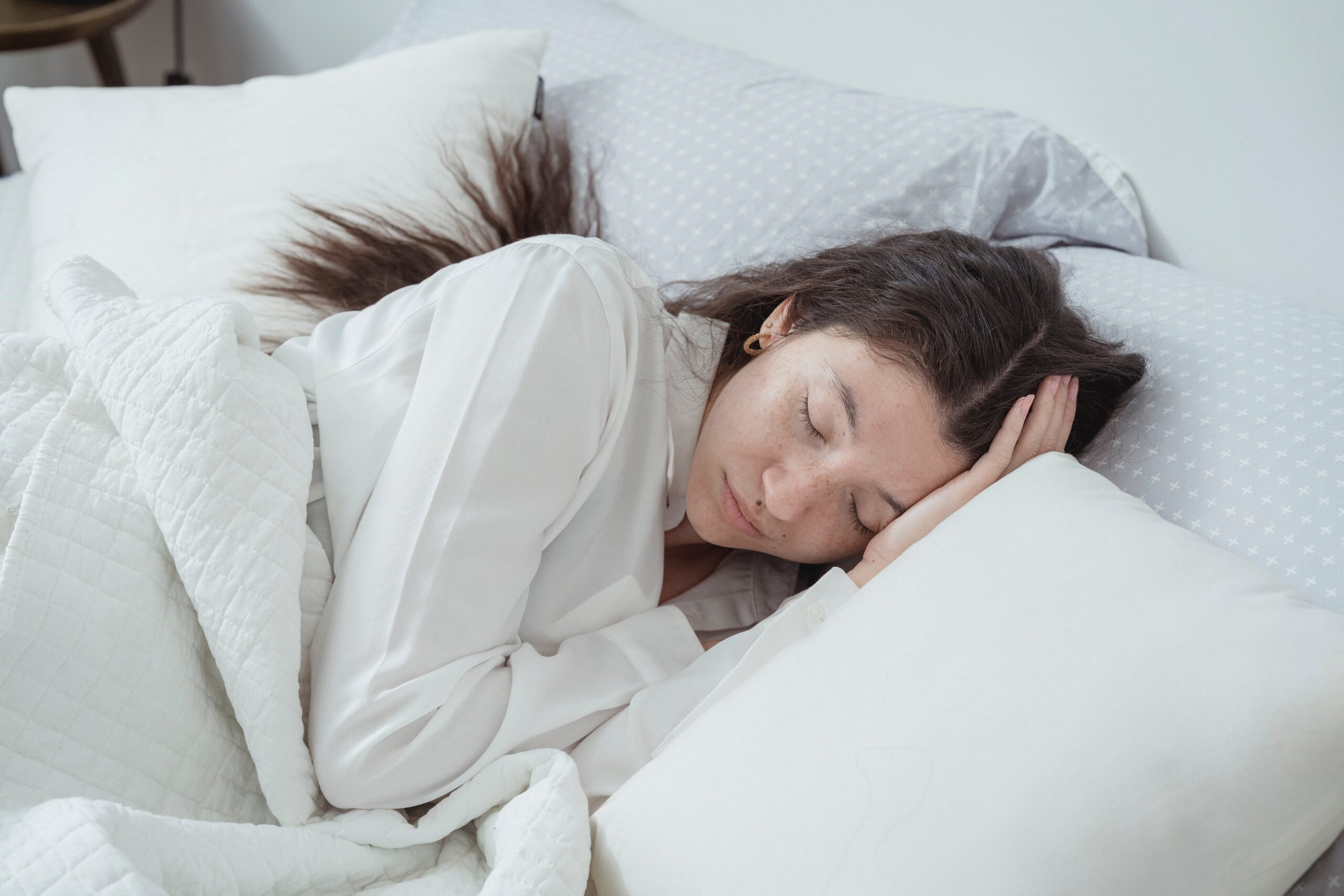
Sleep apnea is a potentially serious sleep disorder that affects millions of people worldwide.
It is characterized by the repeated cessation and resumption of breathing during sleep.
If you snore loudly and often feel tired even after a full night’s rest, you might be suffering.
In this comprehensive guide, we will explore the different types of sleep apnea, their symptoms, causes, and available treatments.
Types of Sleep Apnea
There are three main types:
- obstructive sleep apnea (OSA), central sleep apnea (CSA), and treatment-emergent central sleep apnea. OSA is the most common form of sleep apnea and occurs when the muscles in the throat relax and block the airway.
- CSA, on the other hand, is caused by the brain’s failure to send proper signals to the breathing muscles.
- Treatment-emergent central sleep apnea is a combination of OSA and CSA, where OSA converts to CSA during therapy.
Symptoms of Sleep Apnea
The symptoms of obstructive and central sleep apnea often overlap, making it challenging to determine the specific type of sleep apnea one may have. However, there are common signs to watch out for, including:
-
Loud snoring
-
Episodes of breathing cessation during sleep, often noticed by another person
-
Gasping for air during sleep
-
Awakening with a dry mouth
-
Morning headaches
-
Insomnia or difficulty staying asleep
-
Excessive daytime sleepiness (hypersomnia)
-
Difficulty paying attention while awake
-
Irritability
If you experience any of these symptoms, it is crucial to consult with your healthcare provider for a proper diagnosis and treatment.
Causes of Sleep Apnea
The causes of sleep apnea vary depending on the type. In obstructive sleep apnea, the muscles in the back of the throat relax, leading to airway blockage.
- excess weight,
- narrowed airway,
- enlarged tonsils or adenoids,
- being male,
- aging,
- family history,
- alcohol or sedative use, smoking,
- nasal congestion,
- heart failure
- diabetes.
Central sleep apnea, on the other hand, occurs when the brain fails to send proper signals to the breathing muscles. Risk factors for central sleep apnea include being older, being male, having heart disorders, using narcotic pain medicines, and having had a stroke.
Complications of Sleep Apnea
Sleep apnea is a serious medical condition that can lead to various complications if left untreated. Some of the complications associated with obstructive sleep apnea include the following:
- Daytime fatigue and drowsiness
- Difficulty concentrating and increased irritability
- High blood pressure and cardiovascular problems
- Increased risk of type 2 diabetes and insulin resistance
- Metabolic syndrome and increased risk of heart disease
- Complications with medicines and surgery
- Liver problems
- Sleep disruption for partners and family members
Central sleep apnea can also lead to severe fatigue, cardiovascular problems, and a worsening prognosis if there is an underlying heart disease.
Diagnosis and Treatment
If you suspect that you have sleep apnea, it is essential to seek a proper diagnosis from a healthcare provider. They may recommend a sleep study, which can be conducted at a sleep centre or in the comfort of your own home. The study will monitor your breathing, heart rate, and other vital signs during sleep to determine the presence and severity of sleep apnea.
Treatment options for sleep apnea vary depending on the type and severity. For mild to moderate cases of obstructive sleep apnea, lifestyle changes such as weight loss, regular exercise, and avoiding alcohol and sedatives may be sufficient. Continuous positive airway pressure (CPAP) therapy, which involves wearing a mask that delivers pressurized air, is the most common treatment for moderate-to-severe obstructive sleep apnea.
Central sleep apnea may require different treatments, such as addressing underlying medical conditions or using adaptive servo-ventilation (ASV) therapy to regulate breathing. In some cases, a combination of therapies may be necessary.
Lifestyle Changes for Sleep Apnea Management
In addition to medical treatments, certain lifestyle changes can help manage sleep apnea and improve its symptoms. These include:
- Maintaining a healthy weight through regular exercise and a balanced diet
- Sleeping on your side instead of your back reduces airway obstruction
- Avoiding alcohol, sedatives, and heavy meals before bedtime
- Practicing good sleep hygiene, including maintaining a consistent sleep schedule and creating a comfortable sleep environment,
- Using nasal decongestants or nasal strips to improve nasal airflow
Seeking Support and Resources
Living with sleep apnea can be challenging, but there are numerous resources available to support you on your journey. Online communities, support groups, and educational materials from reputable sources like the Mayo Clinic can provide valuable information and a sense of community for individuals with sleep disorders.
Additionally, products and services specifically designed for sleep apnea management, such as books, newsletters, and sleep apnea products, can offer further guidance and support.
Conclusion
Sleep apnea is a serious sleep disorder that can have significant impacts on your health and well-being. Recognizing the symptoms, understanding the causes, and seeking proper diagnosis and treatment are essential steps towards managing this condition. By making lifestyle changes, utilizing medical treatments, and accessing available resources, individuals with sleep apnea can improve their quality of sleep and overall health. Remember, it is never too late to take control of your sleep and prioritize your well-being.
FAQ
Can sleep apnea kill you?
Untreated or severe sleep apnea can have serious health consequences and, in some cases, may contribute to an increased risk of life-threatening conditions
sleep apnea machine test?
sleep apnea testing, particularly with machines like Continuous Positive Airway Pressure (CPAP) machines
can sleep apnea go away?
Sleep apnea can improve or even go away with appropriate treatment. The effectiveness of treatment depends on various factors, including the severity of the condition.
sleep apnea symptoms in women?
Sleep apnea symptoms in women can sometimes differ from those in men, and they may also be more subtle.
Is sleep apnea curable?
While some lifestyle changes and treatments can effectively manage sleep apnea, it may not always be completely curable

